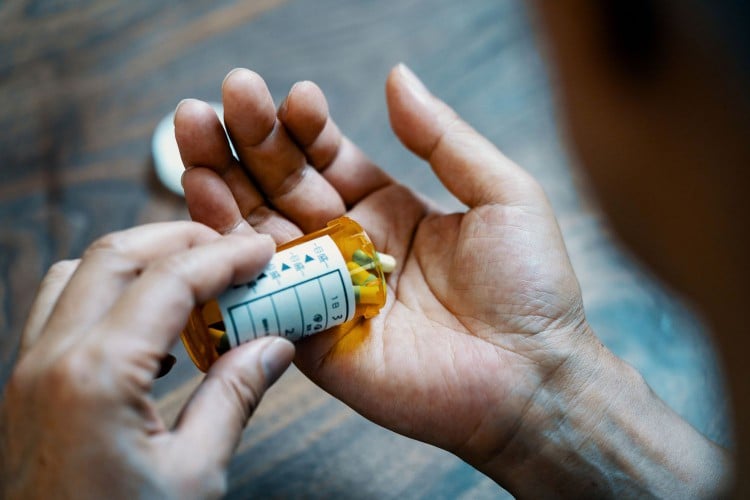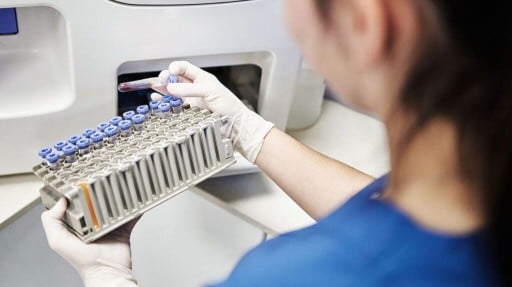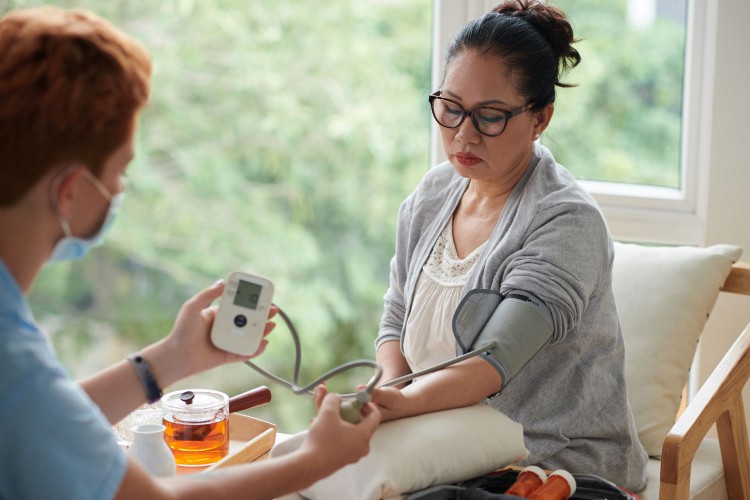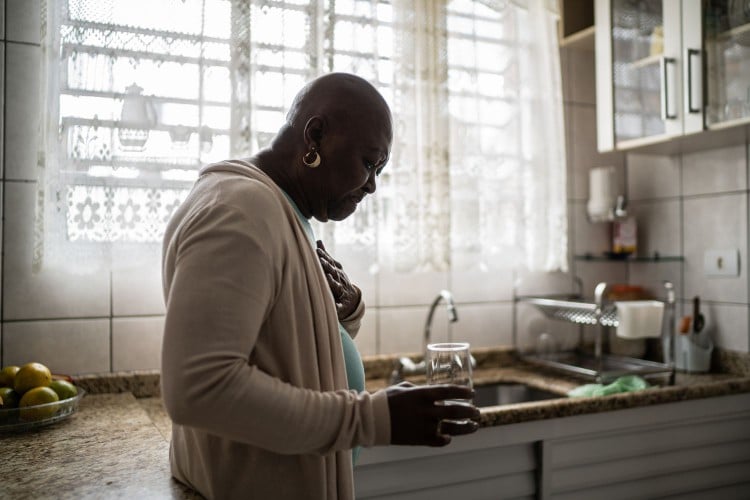- The Centers for Disease Control and Prevention (CDC) has released a new draft recommendation that urges the prescription of doxycycline in order to prevent bacterial STIs.
- The recommendation is currently for men who have sex with men and transgender women.
- The CDC is expected to release its finalized guidance after the draft recommendations are closed to public comment on November 16.

Trevor Williams/Getty Images
Prescribing an antibiotic in order to prevent STIs may become a new government recommendation.
Earlier this week, the Centers for Disease Control and Prevention (CDC) released new draft recommendations that urge doctors to prescribe a common antibiotic—doxycycline—to select people to prevent several STIs that are on the rise in the U.S.
The recommendations suggest using doxycycline can help prevent bacterial STI infections like chlamydia, gonorrhea, and syphilis after someone has unprotected sex.
At this time, the treatment, which is called doxycycline post-exposure prophylaxis (or doxy-PEP), is only suggested for men who have sex with men and transgender women.
Here’s what the research says about taking an antibiotic after sex and STI risk, as well as the reasoning behind the CDC’s new draft recommendation.
STI vs STD: Do They Mean the Same Thing?
Using Antibiotics for STI Prevention
The need for STI prevention in the United States is seen by the clear, consistent increase in STI cases.
“Since 2014, rates of the most common bacterial STIs—gonorrhea, chlamydia, and syphilis—have increased significantly in this country,” John A. Nelson, PhD, STI screening researcher and director of the AIDS Education and Training Center at the Rutgers School of Nursing, told Health.
More than 2.5 million cases of chlamydia, gonorrhea, and syphilis were reported in 2021; syphilis cases, in particular, are skyrocketing.
“It’s alarming because these are all preventable and they can have serious consequences,” Nelson said. “It’s definitely a national problem.”
Research suggests that antibiotics may be a factor in the mission of STI prevention.
Earlier this year, a study of 501 men found that taking 200 milligrams of doxycycline within 72 hours after unprotected sex could reduce the risk of developing gonorrhea, chlamydia, and syphilis.
The participants were all assigned male at birth, were sexually active with men, and had been diagnosed with an STI in the past year. They were randomly assigned to take either doxy-PEP or to receive standard care.
Overall, the researchers found that doxy-PEP was approximately 65% effective at reducing cases of gonorrhea, chlamydia, and syphilis. Every three months, the rates of gonorrhea, chlamydia, and syphilis were about two-thirds lower in people who took doxy-PEP as prescribed compared to those who received standard care.
“There’s very compelling evidence this works,” infectious disease expert David Goodman, MD, an assistant clinical professor in the UCLA Department of Medicine and a physician-scientist at UCLA Health, told Health. “The idea is that, if you get medication onboard early enough after a sexual encounter, you treat that infection very early and can avoid complications of those infections.”
The draft recommendations are “kind of like an emergency act,” Nelson said. “There is an epidemic of STIs, and we need to do something."
Can You Get an STI From Kissing? Here's What You Should Know
Understanding Doxycycline and Antibiotic Resistance
Doxycycline is a broad-spectrum antibiotic in a family of medications called tetracyclines.
“It’s one of our favorite antibiotics, especially for infectious disease doctors,” Goodman said.
Doxycycline has a broad range of uses, including treatment for STIs, Lyme disease, and acne.
That said, any new antibiotic recommendation often comes with a slight concern for antibiotic resistance—when germs like bacteria develop the ability to defeat the medications that are designed to kill them.
“Of course, there is a concern for antibiotic resistance,” Goodman said. “Every time we use antibiotics more, bacteria gets smart and figures out how to become resistant.”
More than 2.8 million antimicrobial-resistant infections happen in the U.S. each year, according to the CDC. Antibiotic-resistant infections can lead to organ failure, longer-than-usual recovery times from an illness, and even death.
Germs develop defense strategies against antibiotics and antifungals to help them survive, and this antimicrobial resistance is accelerated when antibiotics and antifungals are used.
As a result, it’s important to use antibiotics only when they’re truly needed. But, as is seen with STI statistics and the CDC’s new draft recommendation, prescribing doxycycline for STI prevention may be an appropriate use of antibiotics.
Why the Recommendation Isn’t For Everyone
Currently, the draft recommendations are only directed at men who have sex with men and transgender women. Yet, cisgender women and transgender men are still at risk of getting bacterial STIs, too.
While that may be true, Nelson explained that research simply hasn’t supported the use of doxy-PEP for these populations, yet.
He cited a study of 449 women in Kenya who were given doxy-PEP after sex, which found the strategy wasn’t helpful in reducing the risk of developing STIs. Doxy-PEP also hasn’t been studied in transgender men.
Nelson explained that a few factors could have been at play during the study in Kenya, including higher rates of doxycycline-resistant gonorrhea in the community and the possibility of study participants not taking the medication as prescribed—but he’s not giving up on using doxy-PEP for women and transgender men yet.
“We need more studies on this on people with vaginas and cervixes,” he said.
The CDC is expected to release its final guidance sometime after the proposal has been closed to the public for comment on November 16.








